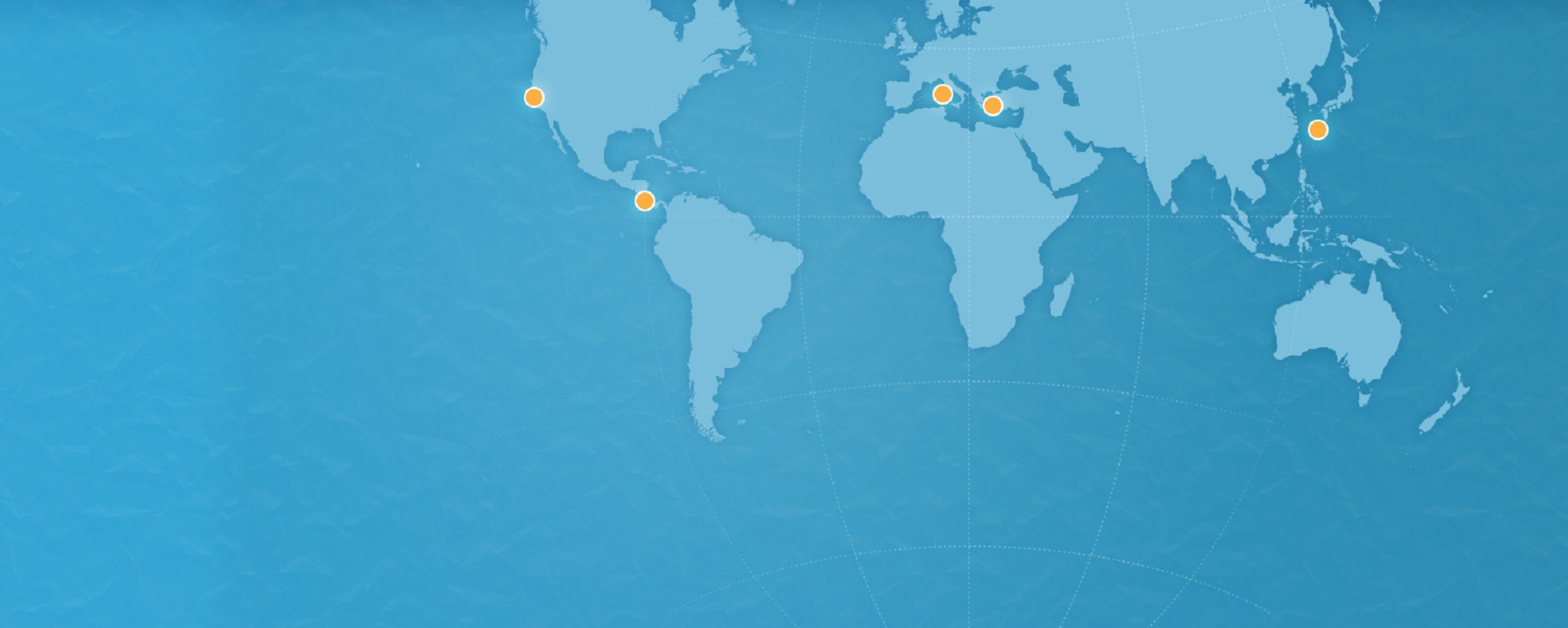Secrets from the world's longest-lived people
In 2004, Dan Buettner teamed up with National Geographic and the world’s best longevity researchers to identify pockets around the world where people live measurably longer, better. In these “Blue Zones,” they found that people reach age 100 at rates 10 times greater than the rate in the United States.
After identifying 5 of the world’s Blue Zones®, Buettner and National Geographic took teams of scientists to each location to identify lifestyle characteristics that might explain longevity. They found that the lifestyles of all Blue Zones residents shared nine specific characteristics, called the Power 9® Principles.
The stories of these original Blue Zones areas are the foundation of Blue Zones Project®.
Resources
The New York Times Magazine: The Island Where People Forget to Die
National Geographic: Here Are the Secrets to a Long and Healthy Life
Newsweek: Crimes of the Heart
Loma Linda, California
Loma Linda has long been a center of activity for the Seventh-day Adventist Church, whose faith endorses healthy living and leads the nation in the longest life expectancy. Their faith, and the volunteerism it inspires, provides individuals with a sense of life purpose and keeps community ties strong. In addition, their Sabbath creates a "sanctuary in time" from workday stresses.
Many Adventists enjoy a vegetarian diet heavy in nuts and fresh, California fruits and vegetables. As a result, they experience a healthier BMI (Body Mass Index) and a lower risk for various types of cancers. A lifelong commitment to regular, moderate exercise also contributes to the vitality of senior citizens, who are gym members and power walkers at 70 years of age and older.
Nicoya, Costa Rica
Costa Ricans spend only 15% of what Americans do on healthcare, yet its people appear to be living longer, healthier lives than people in any other country on Earth. Their diet consists of foods high in nutritional value like fortified maize and beans, and fresh fruits and vegetables from their own fruit trees and gardens. Their water has very high calcium levels, which contributes to strong bones and low rates of heart disease, while year-round sunshine provides Vitamin D that counteracts depression and osteoporosis.
During these long and healthy lives, many centenarians live with relatives and are surrounded by lifelong neighbors. They have strong faith and stay focused on their life purpose, a strong work ethic and the importance of enjoying life. Costa Ricans don't let stress diminish their natural vigor.
Sardinia, Italy
Sardinia has a reputation for having a high number of centenarians, especially its men. For almost 150 years, members of this isolated, mountainous, Mediterranean region have lived as farmers and shepherds, getting cardio and musculoskeletal benefits from walking five miles every day.
Sardinian diets center around whole-grain bread, goat's milk, beans, garden vegetables, fruits, and pecorino sheep's-milk cheese. Meat is mainly reserved for Sundays and special meals. Moderate consumption of Sardinian red wine, which is high in artery-scrubbing flavanoids, greatly helps lower heart disease and stress levels as well. A sardonic sense of humor is also key, allowing Sardinians to shed stress naturally and diffuse arguments before they start.
Ikaria, Greece
The climate, therapeutic thermal springs and landscape of Ikaria, Greece, make the residents of this isolated Aegean island four times more likely to reach 90 years of age than Americans. Through their work of farming, fishing and herding, Ikarians receive a sense of fulfillment from living off their precious land and gain exercise that improves health and staves off dementia.
Another important habit is their diet, which includes staple foods like beans, nuts, local vegetables, field herbs and goat's milk — and a special local honey that contains powerful properties to fight prostate and breast cancers. It seems, however, that their real secret may be napping! Ikarians open shops late, nap in the early afternoon, and then socialize into the night with close family, friends and local festivals.
Okinawa, Japan
Okinawans have one-fifth the rate of cardiovascular disease, one-fourth the rate of breast and prostate cancer, and one-third the rate of dementia than Americans. Much of this is attributed to their strong social networks, active walking and gardening and regular exposure to Vitamin D. Their year-round access to fresh medicinal herbs, homegrown vegetables and soy-based protein also contributes to their health.
During World War II, this tiny island also survived The Battle of Okinawa, which was the largest offensive attack in the Pacific. Perhaps this inspires their elders' ability to embrace ikigai, or a "life of purpose," where they feel needed and honored. Okinawans make sure to enjoy life's simple pleasures, including the respect they receive within their families and communities today.
Learn more about the original Blue Zones areas here
Copyright © 2021 Blue Zones, LLC and Sharecare, Inc. All rights reserved.




